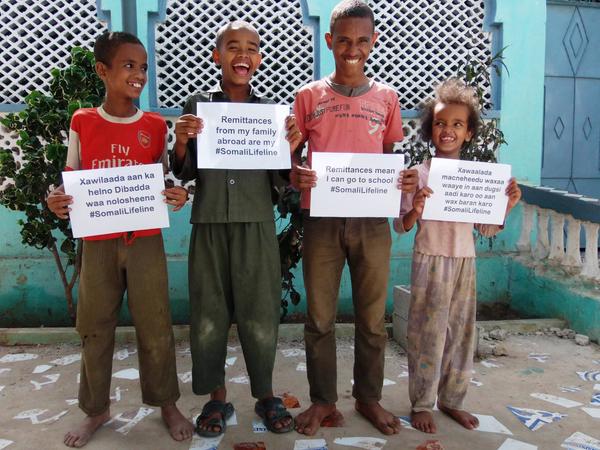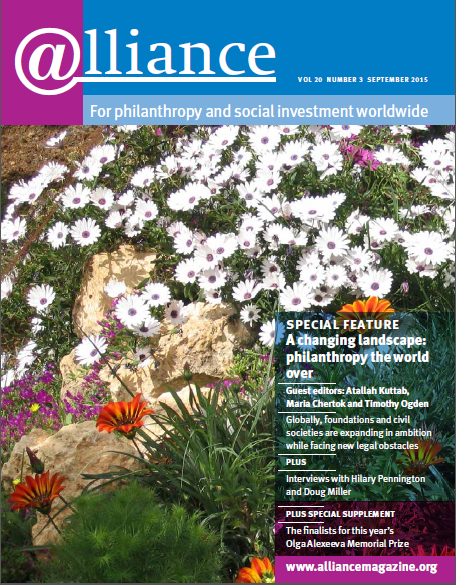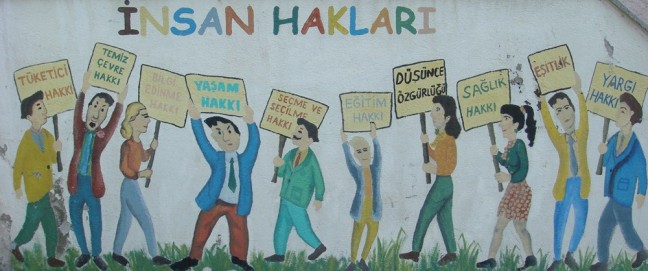The lives of vulnerable people in the poorest countries are being made still harder by the effects of Anti-Money Laundering and Combating the Financing of Terrorism regulations. In Somalia, Oxfam has experienced disruption in its ability to send money for projects to its partners in the country, both from Europe and from Kenya, as a result of banks’ fear of prosecution. The flow of remittances is also threatened. At the root of this is banks’ decision to treat the whole of Somalia as high-risk rather than carrying out detailed individual risk analyses.
Every year, Somalia receives over $1.3 billion in remittances; this represents 25-45 per cent of the country’s economy and exceeds the amount it receives in humanitarian aid, development aid and foreign direct investment combined. Over 40 per cent of Somalis receive remittances.
In Oxfam’s work in Somalia we hear many stories of the impact the money has on people’s lives. ‘This money covers all our basic needs such as food, water and school fees for my children,’ says Suhair Farah Ismail, a mother of five. ‘We are fully dependent on the money. Without it we would not survive.’
But Somalia faces huge challenges in its effort to maintain remittance flows. It does not have a functioning commercial banking system, which leaves Somali companies as the only formal set of institutions through which to send money to the country. To operate, money transfer operators (MTOs) need bank accounts in the countries from which money is sent. Unfortunately, in recent years, Somali MTOs have found it increasingly difficult to access banking services in the US, the UK, Australia and elsewhere. Despite the efforts of Somali companies to comply with Anti-Money Laundering and Combating the Financing of Terrorism regulations, most international banks are exiting sectors viewed as high-risk and have branded Somalia as a particularly risky destination because of its weak financial regulation and the presence of groups listed as terrorists.

Restrictions on cross-border finance inadvertently have stalled payments to peoples’ families in Somalia.
The Financial Action Task Force (FATF) has rightly taken up the exclusion of poor people from the formal financial system as well as the issue of bank de-risking – ‘the phenomenon of financial institutions terminating or restricting business relationships with clients or categories of clients to avoid, rather than manage, risk in line with the FATF’s risk-based approach’. The withdrawal of banking services from Somali MTOs is just one example of de-risking that affects vulnerable communities. The FATF has promised to work with the G20’s Global Partnership for Financial Inclusion (GFPI) and other institutions to take stock of the impact of de-risking.
How can we ensure that remittances continue to reach people who rely on them? Ultimately, we need to support development of an inclusive banking system that works for all Somalis and complies with international regulations. A first step would be to develop clear guidelines for banks at national levels that discourage de-banking of entire sectors. Of course there are issues of terrorism and criminality in Somalia, but painting a whole country as a terror risk is just wrong.
Ed Pomfret is campaigns and policy manager of Oxfam in Somalia. Email Ed.Pomfret@oxfamnovib.nl
The effects of FATF on civil society globally
Why are NGOs in Kosovo unable to receive more than €1,000 in funds per day? Why are cash donations of more than $255 banned in Azerbaijan? Why do foundations and NGOs in Spain have to verify the identity of everyone who makes a donation or provides resources worth more than €100? Or Pakistani NGOs promise not to employ more than 10 per cent of staff with foreign passports? This is a tiny snapshot of the sea of red tape that the Financial Action Task Force (FATF) has created and which is strangling civil society.
The FATF, based in Paris, sees civil society as a weak link through which terrorists and criminal gangs can channel or launder money and it asks government to control, tightly, the flow of funds across borders, especially to groups working on conflict resolution, development and human rights.
Non-compliance isn’t really an option as states that fail to comply are threatened with being placed on a credit black list. At present, FATF standards impose the same burden of scrutiny on civil society groups as on pawn shops and casinos, despite there being no evidence of any CSO being involved in money laundering. The law of unintended consequences in this case means that instead of catching the criminals, FATF appears to be squeezing the life out of all kinds of organizations there to support the healthy development of societies.
For more information
http://fatfplatform.org




Comments (1)
Absolutely true - our small outfit supporting Bedouin development in South Sinai) has been subjected for years to banking scrutiny which we are pretty sure is linked to state security. I have been grilled as if I were an international criminal and am always anxious about our team on the ground. Given that the sort of development we try to do promotes stability and security in this very poor community it seems obvious that hampering our work is counterproductive at best. It beggars belief to see what commercial and personal interest can get away with, while the very same banks turn the screws on the poor.